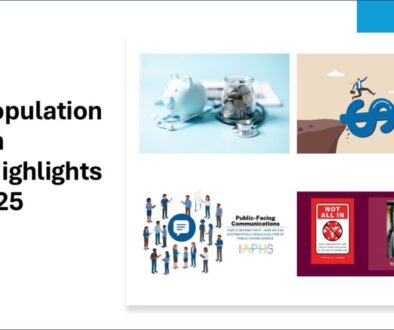Fantastic Grant Opportunity for Population Health Post Docs: K99/R00
Jennifer AilshireOn the 10-year anniversary of the NIH Pathway to Independence Award (K99/R00), many emerging population health scientists still aren’t aware of the potential of this grant mechanism to help them develop an independent research trajectory. The K99/R00 provides up to 5 years of funding to facilitate the transition of postdoctoral researchers to faculty positions and to launch a successful independent research career. This two-phase grant award includes 1-2 years of postdoctoral funding to obtain additional mentored training (the K99 phase) followed by 3 years of funding as a PI of a research project (the R00 phase).
Kangaroos
The K99/R00, referred to affectionately by some as the “Kangaroo” or “K-R00,” is neither a fellowship award nor a research grant. It’s a unique award with a particular set of requirements and guidelines (see the most recent Founding Opportunity Announcement, PA-16-193 for details). Only current postdocs can apply for this award, and they must have a PhD (or equivalent doctoral-level research degree) and no more than 4 years of postdoctoral training at the submission time. (However, NIH allows applications within 5 years of their PhD for those who took time off for parental leave or other “well-justified” situations.)
NIH expects applicants to have significant research experience, typically demonstrated with publications, but who need some additional mentored training and career development in order to complete the research aims of the R00.
Research, Research, Research
The K99 phase of the award is similar to other K awards in that it’s primarily focused on mentored training and career development, and it requires you to devote 75% of your time to research (postdoc fellows typically devote 100% of their time to research anyway). Transitioning to the R00 phase happens after securing a tenure-track position, with NIH approval, and also requires 75% effort for research. The grant provides funds for salary and research support during both the K99 and R00 phase. The amount and allocation of these funds is set by each NIH Institute.
Is the K99/R00 for you?
If you think your research could be enhanced with additional training and you need that training, combined with your current areas of expertise, to launch a large-scale research project, then consider applying. But keep in mind that getting a K99/R00 will extend your postdoctoral training. Although most grants are funded on the first application, resubmissions may be necessary, which can increase the time from first submission to the start of the K99 phase. The additional 1-2 years of K99 training means a minimum of 3-4 years of postdoctoral training. In addition, transitioning to the R00 requires obtaining a tenure-track position, most likely at a research-oriented institution. There is an expectation that awardees will obtain additional external grant support, so it’s important to obtain a position at a place where research is supported.
 My experience with the kangaroo
My experience with the kangaroo
Having a K99/R00 has been incredibly valuable for my early career development as a population health scientist. The additional training I received, which was very different from my PhD training, has helped me to be more interdisciplinary in my approach to population health research. Prior to submitting the K99/R00, I’d always found NIH grants to be overwhelming, particularly the R01. But after the K99/R00 application experience, an R01 application doesn’t seem so daunting. At the conclusion of the R00 phase, it’s expected that awardees submit an R01 application to NIH, and there are data showing the program has been successful in this respect. I’ve already submitted several large grant applications, and I’m preparing my first R01 submission now, so the program has worked for me.
If you’re considering applying for a K99/R00, you may find it helpful to see what a funded application looks like. You can find funded applications in the NIH Reporter–look for grants with the K99 activity code. You can also find an extensive compilation of helpful resources here. You will soon find that most K99/R00 awards have been in the biomedical sciences. But NIH’s mission with this award is to “increase and maintain a strong cohort of new and talented, NIH-supported, independent investigators,” and this includes population health scientists. In fact, I think the readers of the IAHPS blog may be particularly well-suited for this grant mechanism since it’s often awarded to people proposing interdisciplinary training and research.





All comments will be reviewed and posted if substantive and of general interest to IAPHS readers.